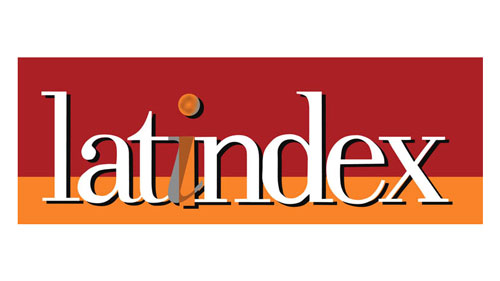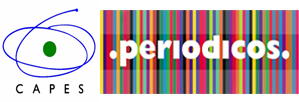Crenças dos aprendizes brasileiros de japonês sobre seu aprendizado: com foco na etnia e nível de proficiência em japonês
Beliefs of Brazilian learners of Japanese regarding their learning: with a focus on ethnicity and proficiency level in Japanese
DOI:
https://doi.org/10.26512/rhla.v23i1.53784Keywords:
Beliefs, Brazilian learners of Japanese, Japanese descendants, Non-Japanese descendants, Proficiency levelAbstract
This quantitative research aims to investigate the beliefs of Brazilian learners of Japanese regarding the learning and use of the language, focusing on their ethnicity (Japanese Brazilians or non-Japanese Brazilians) and proficiency level in Japanese. The results from the factor analysis of the 98 collected questionnaires revealed five extracted factors: the importance of effort and awareness in language learning, the need for grammar in learning, the interest in Japan and intention to visit, the interest in the Japanese Brazilian community, and the relationship between achieving an advanced level and willingness/effort. It became evident that interest in Japan and the Japanese Brazilian community, as well as the importance of grammar in learning, are particularly prominent factors in their learning beliefs.
References
ABE, S. Diversidade nas crenças de aprendizagem de línguas de estudantes de japonês em instituições de ensino superior no Brasil. Program & Proceeding. International Conference on Social, Linguistic and Human Mobility and Integration (EJHIB2019), Japan House São Paulo, 2019.
ALBUQUERQUE, J. M. de. Fatores motivacionais dos estudantes brasileiros de japonês como LE. 2012. 71f. Trabalho de Conclusão de Curso (Graduação em Letras - Japonês) - Instituto de Letras, Universidade de Brasília, Brasília, 2012.
BARCELOS, A. M. F. Crenças sobre aprendizagem de línguas, Linguística Aplicada e ensino de línguas. Linguagem & Ensino, v. 7, n. 1, p. 123-156, 2004.
BARCELOS, A. M. F. Narrativas, crenças e experiências de aprender inglês. Linguagem & Ensino, v. 9, n.2, p. 145-175, 2006.
BARCELOS, A. M. F. Reflexões acerca da mudança de crenças sobre ensino e aprendizagem de línguas. Rev. Brasileira de Linguística Aplicada, v.7, n. 2, p. 109-138, 2007.
BRITO, L. G. F. de. Breve reflexão sobre seis estudantes que abandonaram o curso de graduação e licenciatura em Língua e Literatura Japonesa da Universidade de Brasília: estudo de caso. 2013. 76f. Trabalho de Conclusão de Curso (Graduação em Letras - Japonês) – Instituto de Letras, Universidade de Brasília, Brasília, 2013.
CÂMARA DOS DEPUTADOS. Câmara dos Deputados comemora, em sessão solene, 115 anos da imigração japonesa ao Brasil, 2023. Disponível em: https://www.camara.leg.br/noticias/971338-CAMARA-DOS-DEPUTADOS-COMEMORA,-EM-SESSAO-SOLENE,-115-ANOS-DA-IMIGRACAO-JAPONESA-AO-BRASIL. Acesso em: 12 jan. 2024.
DEWEY, J. Experience and Education. Nova York: Macmillan, 1938.
FEIJÓ, F. R.; MUKAI, Y. Crenças de alunos brasileiros (de japonês como LE) em relação à habilidade de fala em língua japonesa. Estudos Japoneses, n. 34, p. 46-70, 2014.
FUKUSHI, J. M.; MUKAI, Y. Crenças sobre a habilidade de fala dos aprendizes da língua japonesa como LE (língua estrangeira) em um curso universitário: uma análise da metodologia de ensino. Estudos Japoneses, n. 32, p. 77-100, 2012.
FUNDAÇÃO JAPÃO. Kaigai no nihongo kyôiku no genjô – 2021nendo kaigai nihongo kyôiku kikan chôsa yori (Situação atual do ensino de japonês no exterior: resultados da pesquisa de instituições de ensino de japonês no exterior para o ano fiscal de 2021), 2023. Disponível em: https://www.jpf.go.jp/j/project/japanese/survey/result/dl/survey2021/all.pdf. Acesso em: 03 dez. 2023.
FUNDAÇÃO JAPÃO; JAPAN EDUCATIONAL EXCHANGES AND SERVICES. Nihongo nôryokou shiken JLPT: tôkei data (Teste de proficiência em japonês -JLPT: dados estatísticos), 2003. Disponível em: https://www.jlpt.jp/statistics/archive/202301.html. Acesso em: 03 dez. 2023.
HAYASHI, R. K. S. Não existe material ideal, né?: crenças, experiências e ações sobre o material didático de língua japonesa (como LE) na universidade. 2015. 235f. Dissertação (Mestrado em Linguística Aplicada) – Programa de Pós-Graduação em Linguística Aplicada, Universidade de Brasília, Brasília, 2015.
HORWITZ, E. K. Using student beliefs about language learning and teaching in the foreign language methods course. Foreign Language Annals, v. 18, n. 4, p. 333-340, 1985.
HORWITZ, E. K. Surveying student beliefs about language learning. In: WENDEN, A. L.; RUBIN, J. (Ed.). Learner strategies in language learning. London: Prentice-Hall, 1987. p. 119-129.
HOSENFELD, C. Evidence of emergent beliefs of a second language learner: a diary study. In: KALAJA, P.; BARCELOS, A. M. F. (Ed.). Beliefs about SLA: new research approaches. New York: Springer Science+Business Media, LLC, 2003. p. 37-54.
IMMIGRATION SERVICES AGENCY. Reiwa 5nen sue genzai ni okeru zairyû gaikokujinsû ni tsuite (Relatório sobre o número de residentes estrangeiros no final de 2023) (Comunicado à imprensa de 22 de março de 2024), 2024. Disponível em: https://www.moj.go.jp/isa/publications/press/13_00040.html. Acesso em: 29 mar. 2024.
KAWAGUCHI, Y.; YOKOMIZO, S. Seichô suru kyôshi no tame no nihongo kyôiku guidebook (Guia de ensino de língua japonesa para professores em crescimento) (Parte II). Tóquio: Hitsuji Shobo, 2005.
MORALES, L. M. Cem anos de imigração japonesa no Brasil: o japonês como língua estrangeira. 2008. 313f. Tese (Doutorado em Linguística) – Faculdade de Filosofia, Letras e Ciências Humanas, Universidade de São Paulo, São Paulo, 2008.
MUKAI, Y. Crenças e necessidades de aprendizes de japonês como LE (Língua Estrangeira) a respeito da habilidade da escrita e materiais didáticos. Estudos Japoneses, v. 31, p. 193-219, 2011.
MUKAI, Y. Crenças e necessidades em relação à escrita em japonês: nos casos dos estudantes universitários brasileiros e portugueses. Linguagem & Ensino, v.17, n. 2, p. 391-440, 2014.
MUKAI, Y. As pesquisas em crenças no ensino-aprendizagem de japonês como LE no Brasil. Estudos Japoneses, v. 36, p. 169-183, 2016.
MUKAI, Y.; CONCEIÇÃO, M. P. Aprendendo língua japonesa: crenças, ações e reflexões de uma aluna brasileira de japonês como língua estrangeira. In: MUKAI, Y.; JOKO, A. T.; PEREIRA, F. P. (Org.). A língua japonesa no Brasil: reflexões e experiências de ensino e aprendizagem. São Paulo: Pontes, 2012. p. 111-154.
NASCIMENTO, E. T. do. O professor de língua japonesa (LE): crenças e ações de três professores universitários com trajetórias diferenciadas de aquisição/aprendizagem (LM, LH e LE). 2013. 186f. Dissertação (Mestrado em Linguística Aplicada) – Programa de Pós-Graduação em Linguística Aplicada, Universidade de Brasília, Brasília, 2013.
NISHIHATA, S. Não me considero um aprendiz autônomo em relação à língua japonesa: crenças e ações de aprendizagem de estudantes com baixo aproveitamento acadêmico. 2017. 140f. Dissertação (Mestrado em Linguística Aplicada) – Programa de Pós-Graduação em Linguística Aplicada, Universidade de Brasília, Brasília, 2017.
OLIVEIRA, A. W. M de. É assim que eu escrevo: estratégias de aprendizagem de kanji e crenças de professores de língua japonesa em formação. 2013. 163f. Dissertação (Mestrado em Linguística Aplicada) – Programa de Pós-Graduação em Linguística Aplicada, Universidade de Brasília, Brasília, 2013.
SARUTA, S. Koritsu kankyô ni okeru nihongo gakushû dôki, gakushû kon’nando: finrandojin nihongo gakushûsha o taishô ni (Motivação e dificuldades de aprendizado do japonês em um ambiente de isolamento: um estudo com aprendizes finlandeses de japonês. Nihongo Kyôiku (Ensino de Língua Japonesa), n. 185, p. 46-61, 2023.
TAKII, M. The language learning and belief transformation of international students: a qualitative study on the learning motivation of international Thai students. Tóquio: Coco, 2022.
VASCONCELLOS, L. F.; MUKAI, Y. Crenças sobre as dificuldades dos alunos no aprendizado de japonês como língua estrangeira (Beliefs about students’ difficulties in learning Japanese as a foreign language). Revista Hon no Mushi: Estudos Japoneses Multidisciplinares, Manaus, v. 5, n. 9, p. 47-71, 2021.
WENDEN, A. L. What do Second-language learners know about their language learning? A second look at retrospective accounts. Applied Linguistics, v. 7, n. 2, p. 186-205, 1986.
WENDEN, A. L. An introduction to metacognitive knowledge and beliefs in language learning: Beyond the basics. System, v. 27, n. 4, p. 435-441, 1999.
WENDEN, A. L. How to be a successful language learner: Insights and prescriptions from L2 Learners. In: WENDEN, A. L.; RUBIN, J. (Ed.). Learner strategies in language learning. London: Prentice-Hall, 1987. p. 103-117.
YONEYAMA, A. Kenkyusha dictionary of English language learning and teaching (New Edition). Tóquio: Kenkyûsha, 2011.
YOSHIKAWA, M. E. I. Brajiru no nihongo kyôiku no genjô (Situação atual do ensino de japonês no Brasil). In: FUKUSHIMA, S.; YOSHIKAWA, M. E. I. (Org.). Nanbei ni okeru nihongo kyôiku no genjô to mirai: nikkei shakai no potential (O presente e o futuro do ensino de japonês na América do Sul: potencial da comunidade nikkei). São Paulo: Centro Cultural da Fundação Japão em São Paulo, 2018. p. 37-60.
Downloads
Published
Issue
Section
License
Copyright (c) 2024 Revista Horizontes de Linguistica Aplicada

This work is licensed under a Creative Commons Attribution-NonCommercial-NoDerivatives 4.0 International License.

A Revista Horizontes de Linguística Aplicada de http://seer.bce.unb.br/index.php/horizontesla/index é licenciado sob uma Licença Creative Commons Atribuição-Uso não-comercial-Vedada a criação de obras derivadas 3.0 Unported.
- Autores mantém os direitos autorais e concedem à revista o direito de primeira publicação, sendo o trabalho simultaneamente licenciado sob a Creative Commons Attribution License o que permite o compartilhamento do trabalho com reconhecimento da autoria do trabalho e publicação inicial nesta revista.
- Autores têm autorização para assumir contratos adicionais separadamente, para distribuição não exclusiva da versão do trabalho publicada nesta revista (ex.: publicar em repositório institucional ou como capítulo de livro), com reconhecimento de autoria e publicação inicial nesta revista.




